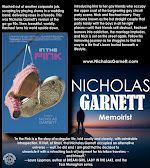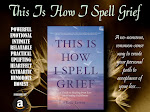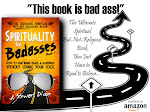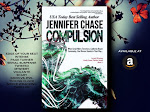Guest Post: "The 100 Rejections Strategy: An Almost Foolproof, Nearly Effortless, Slightly Masochistic Plan for Getting Yourself Published" by James Ryan Daley
As someone with a decade of experience as
both an editor and author, I’ve been asked about a thousand times what the
“secret” is for getting published. While I don’t believe that there is any real
secret, I happened to receive some great advice on the matter when I was just
starting out as a writer myself, so I happily pass it along to anyone
who asks. The advice comes from my college writing mentor, Kenny Cook (author of The Girl
From Charnell, and about a thousand beautiful and heartbreaking short
stories) and it basically goes like this: “Write well and collect 100 rejection
letters every year.”
Now, it goes without saying that the first
half of this advice is by far the more important (and difficult) piece to
follow. That being said, “How to write well” is a bit too broad of a topic for
a 500 word blog post, so right now I’m going to focus on the second part of the
advice: collect 100 rejection letters every year. While not as critical to
getting published as, you know, actually writing
well, it has nonetheless proved quite valuable to me and to everyone I know
who’s tried it.
Here’s the basic idea:
1.
You make it your goal to
receive 100 rejection letters every year.
2.
You DO NOT set any kind of goal
for how many stories (or books, or essays, or whatever you write) will actually
get published.
3.
Every time you get a rejection
letter, you check one off of your goal of 100.
4.
Every time you get something
published, you immediately submit something new, so as to ensure that you don’t
fall short of your 100 rejections.
This is a brilliant strategy for two reasons.
First of all, it forces you to submit your work to lots and lots of potential
publishers. One of the most difficult hurdles to overcome as a new writer is
getting yourself out of the slush pile, and the best way to overcome that
hurdle is to get yourself into as
many slush piles as humanly possible. It’s simple math: the more distracted
editorial assistants who read your story, the more likely it is that one of
them will actually like it.
The second (and arguably more important)
reason that this is such a brilliant strategy is that it takes all the pain out
of getting rejected. Sure, those first few rejections are going to hurt no
matter what, but by number twenty, they will hardly bother you at all. And by
number 90
(I swear this is true) you’ll be so focused
on reaching your goal that you will
actually get excited when you receive a rejection. Why is it so important
to take the pain out of rejection? Again, it really comes down to the math: the
less discouraged you are by rejections, the more likely you are to continue
submitting, and the more you submit, the more you will publish.
So if you happen to be a writer who is just
starting to think about getting yourself published, I strongly encourage you to
give the 100 Rejections Strategy a shot. While I can’t guarantee any results
(after all, you still need to figure out how to write well), I can assure you
that you will be no worse off for trying. After all, even if you don’t get a
single publication, at least you will have eliminated the possibility that
you’re just not trying hard enough.
//////////////////////
Title:
Jesus Jackson
Genre: Young Adult Mystery
Author: James Ryan Daley
Website: www.jamesryandaley.com
Publisher: The Poisoned Pencil
The Poisoned Pen / Amazon / Barnes & Noble
Author: James Ryan Daley
Website: www.jamesryandaley.com
Publisher: The Poisoned Pencil
The Poisoned Pen / Amazon / Barnes & Noble
ABOUT THE
AUTHOR
James Ryan Daley is a writer, editor, and digital
designer. After earning an MFA in fiction at the Vermont College of Fine Arts
in 2004, James has spent most of the years since teaching writing to college
students, creating websites about video games, and editing anthologies of
fiction and political rhetoric. When he's not glued to his computer, James can
usually be found skiing the slopes of Vermont’s famous mountains or sailing the
harbors of Rhode Island. He lives in Newport, RI with his wife and two
daughters.
Website: http://jamesryandaley.com/
Facebook: https://www.facebook.com/jamesryandaley
Twitter: https://twitter.com/jamesdaley
Book trailer: http://youtu.be/iD3nMqCzjxo










































































































































































Leave a Comment